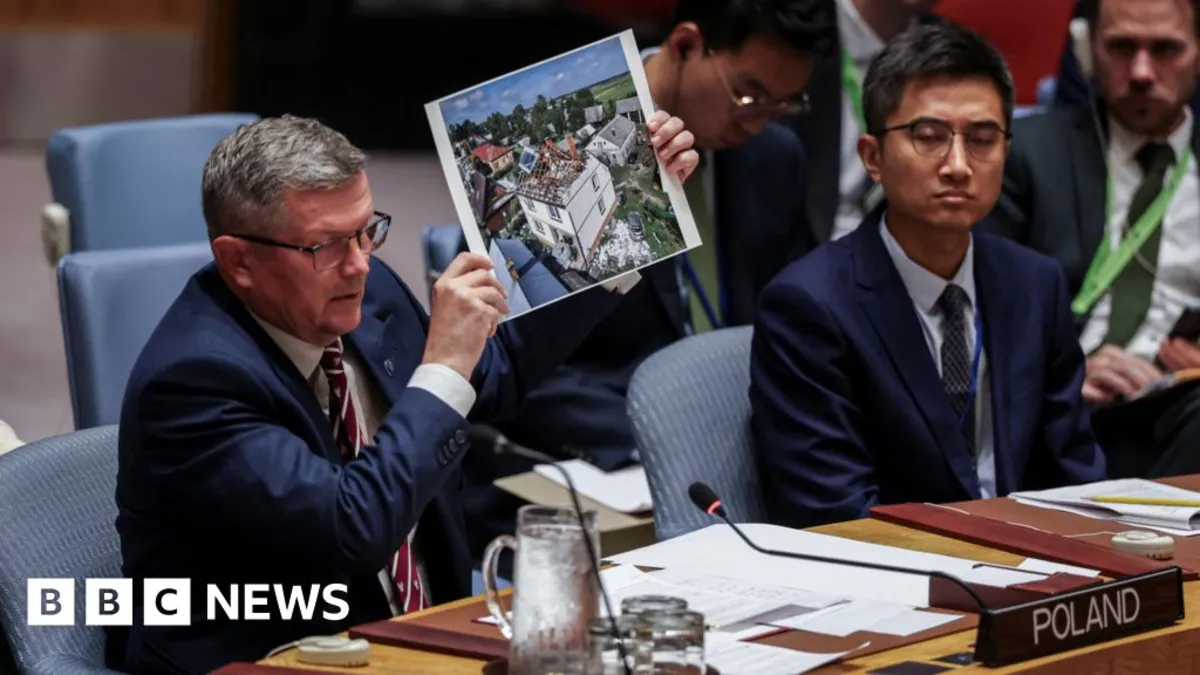
In response to a significant security breach, NATO countries are ramping up their military presence in Eastern Europe. Following the incursion of more than a dozen drones into Polish airspace on Wednesday, Denmark, France, and Germany have committed to a new mission aimed at reinforcing the military alliance's eastern flank. This strategic move underscores the urgency of the situation, as additional NATO allies are expected to join the effort in the coming days.
The recent incursion has escalated tensions across Europe, particularly after Poland accused Russia of orchestrating an unprecedented violation of its airspace. Some of the 19 drones that entered Polish territory were shot down, while others crashed into fields and even a residential house in eastern Poland. The Polish government has characterized this incursion as a deliberate act, while Moscow has attempted to downplay the situation, asserting that it has no intention to target Polish facilities.
This incident marks the most serious breach of Polish airspace since the onset of Russia's full-scale invasion of Ukraine in February 2022. Polish Prime Minister Donald Tusk emphasized the gravity of the situation, stating that it brings Europe closer to open conflict than at any time since World War Two.
In a demonstration of solidarity, Denmark has pledged to send two F-16 fighter jets and a warship to bolster Poland's air defense capabilities. Danish Prime Minister Mette Frederiksen remarked, "We must not be naive. Putin will stop at nothing, and he is testing us." France is contributing three Rafale fighter jets, while Germany has committed to providing four Eurofighters for the mission. Meanwhile, the UK has expressed its full support for strengthening the Eastern Sentry operation, with further details to be announced soon by the Ministry of Defence.
The urgency of the situation was further highlighted during an emergency session of the UN Security Council in New York, where European countries and the United States backed Poland's position regarding the airspace violations. Acting US Ambassador to the UN, Dorothy Shea, reaffirmed the commitment to defend "every inch of NATO territory." She noted a troubling trend of increased Russian bombing campaigns targeting Ukrainian cities and infrastructure since a recent peace summit between US President Donald Trump and Russian President Vladimir Putin.
European allies have voiced concerns that the scale of these aerial assaults indicates a lack of interest from Putin in resolving the conflict in Ukraine. In a notable counter, Ukraine has intensified its offensive operations, targeting Russian refineries, fuel depots, and logistics hubs.
In the wake of these events, Kremlin spokesman Dmitry Peskov stated that peace negotiations have stalled, attributing the deadlock to Ukraine's European allies. Trump has expressed frustration, noting the inconsistent willingness of both Putin and Ukrainian President Volodymyr Zelensky to engage in peace talks.
During the UN session, Poland's Secretary of State Marcin Bosacki presented evidence, including photographs of one of the downed drones and the damage it caused to a house, asserting, "We know – and I repeat – we know that it was not a mistake." In contrast, Russia maintains that the drones' operational range could not have reached Polish territory, with Russian UN Ambassador Vasilly Nebenzia inviting Poland to engage in discussions aimed at de-escalating tensions.
Adding another layer of complexity, Russia and Belarus have begun joint military drills, which they conduct every four years. These exercises are taking place near the borders of Poland and Lithuania, as well as in the Baltic and Barents seas. Both countries have dismissed accusations that these drills pose a threat to neighboring nations.
In response to the escalating situation, countries like the Netherlands and Czech Republic have pledged to send defense support to Poland, while Lithuania is set to receive a German brigade. This collective effort reflects a unified stance among NATO allies as they navigate the increasing challenges posed by Russian military actions in Eastern Europe.